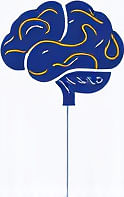Enhancing Remote Collaboration for Neurodiverse Teams
 by Shanie Goodwin
by Shanie Goodwin
Remote collaboration offers unique opportunities for neurodiverse teams, but it also presents specific challenges. This article explores practical strategies to foster effective teamwork, improve productivity, and maintain work-life balance for adults with ADHD or autism.

Remote work has become a common practice, bringing both opportunities and obstacles for neurodiverse teams. For adults with ADHD, maintaining focus during virtual meetings can be tough. One way to address this is by using time blocking to structure the day and reduce distractions.
In remote settings, clear communication is essential. People with autism might find unstructured video calls overwhelming, so establishing routines like starting each meeting with a clear agenda helps. This approach ensures everyone knows what to expect and can participate comfortably.
Productivity tools play a key role in supporting neurodiverse individuals. For instance, apps that offer visual reminders can assist those with ADHD in staying on track. Experimenting with different tools allows teams to find what works best for their needs.
Building a supportive environment is crucial. Team members should feel safe sharing their preferences, such as preferring text-based communication over voice calls. This kind of openness promotes better collaboration and reduces stress.
Challenges in Remote Collaboration
For neurodiverse teams, remote work can amplify certain difficulties. Sensory overload from constant screen time affects many, leading to fatigue. Simple adjustments, like taking regular breaks, can make a difference. Autism often involves sensitivity to environments, so creating a personalized workspace is important.
Another issue is maintaining connections with colleagues. Without face-to-face interactions, feelings of isolation may arise. Scheduling informal check-ins can help build relationships and foster a sense of belonging.
Practical Hacks for Better Productivity
There are several strategies to enhance daily routines. For example, breaking tasks into smaller steps benefits those with ADHD, making large projects less intimidating. Using lists to organize work keeps things manageable and provides a sense of accomplishment.
Incorporating movement into the workday is another helpful tip. Short walks during breaks can improve concentration and energy levels. This practice supports overall well-being and helps with work-life balance.
Technology can be a great ally. Voice-to-text software, for instance, aids those who find typing challenging. Exploring these options allows individuals to work in ways that suit their strengths.
Advice for Work-Life Balance
Achieving balance is about setting boundaries. Ending the workday at a fixed time prevents burnout, which is common among neurodiverse adults. Creating a dedicated workspace at home signals when work begins and ends.
Mindful practices, such as deep breathing exercises, can reduce anxiety during high-pressure tasks. Regular self-checks help individuals recognize when they need a pause.
Team leaders play a vital role in this area. Offering flexible deadlines accommodates different working styles and shows empathy. This support leads to more effective collaboration and higher job satisfaction.
Specific Tips for ADHD and Autism
For adults with ADHD, minimizing distractions is key. Using noise-cancelling headphones during focused work sessions can enhance concentration. Combining this with timed work periods encourages steady progress.
In contrast, those with autism might benefit from predictable schedules. Planning the week in advance reduces uncertainty and allows for better preparation. Sharing these plans with the team ensures smooth interactions.
Encouraging peer support within teams strengthens bonds. Pairing up for tasks lets individuals learn from each other and share strategies that work.
Fostering Inclusivity
In remote collaboration, inclusivity means adapting to diverse needs. Providing options for communication, like chat or video, respects individual preferences. This flexibility helps everyone contribute effectively.
Recognizing achievements, no matter how small, boosts morale. Positive feedback reinforces good practices and motivates continued effort.
Overall, remote work for neurodiverse teams thrives on empathy and adaptation. By implementing these strategies, individuals can achieve greater productivity and balance, creating a more supportive professional life.
